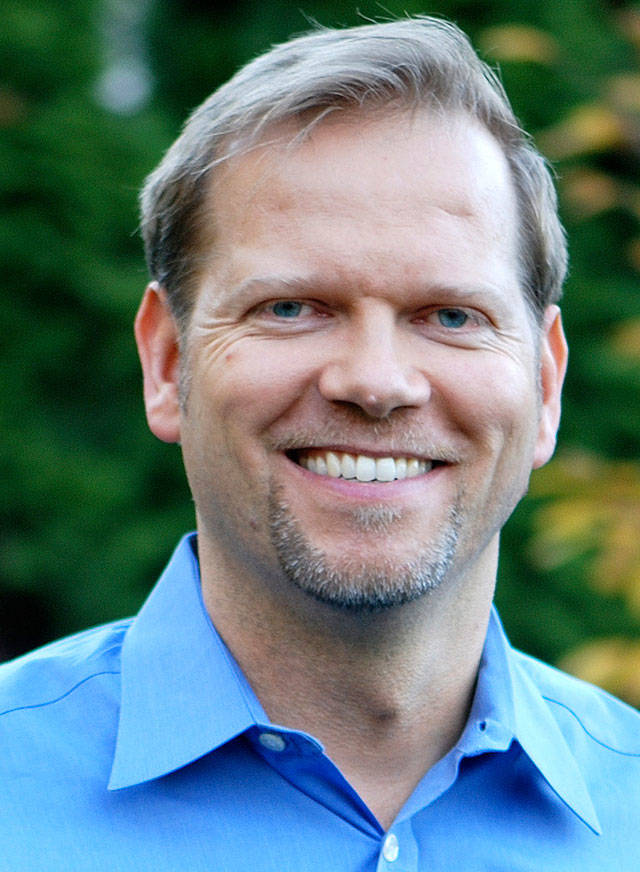By Philipp Schmidt-Pathmann/For the Reporter
The Kent Reporter published an article, “King County considers expansion of the Cedar Hills Landfill,” on Sept. 7. Having been a part of this process for more than 20 years now, I have some fundamental problems regarding the accuracy of information and the overall decision process taking place.
My team and I were part of the Waste-to-Energy (WTE) study that was submitted last October. It is a strong claim to make, but we believe that from the beginning of the WTE study, the King County Solid Waste Division deliberately used unrealistic projections to drive up the cost of WTE and identify landfilling as the preferred disposal method.
Our team of international experts kept emphasizing the need for the county’s waste division to focus on the waste management hierarchy: prevention, re-use, recycling, recovery of energy and materials (WTE) and last, disposal/landfill and conservation of resources: land, groundwater, materials and energy.
We were explicitly told that this information was of no relevance and to exclude it. In contradiction to King County Executive Dow Constantine’s 70 percent recycling goal by 2020, the recycling rate was to remain at 57 percent.
Until recently, the landfill expansion was said to cost $325 million, and WTE $1.4 billion. A county insider stated that the landfill cost is very speculative, as is the WTE cost. due to the futuristic time frame and parameters given. The landfill cost could likely double or triple to $650 million or even $975 million, and the WTE capital cost, if built today and based on a system that would focus more on waste avoidance and recycling, could be as low as half of the $1.4 billion, around $700 million. So where do the $241 million and the $1.8 billion come from? They seem to be nothing more than the fabrication of a biased process.
Countries like Germany and Denmark, among many others, have clearly shown that phasing out landfilling pays off. Germany is known for the highest recycling rate of any country in the world. Germany, with more than 80 million people, landfills less than 200,000 tons waste, of which all is pretreated, meaning it no longer reacts with the environment. That is less than one-quarter of what we currently landfill in King County with 2 million people (900,000 tons of untreated, reactive waste).
In addition, the average household in Germany or Denmark pays less than does the average King County household. Germany and Denmark also have hundreds of years of landfill capacity left, if needed. The landfill industry is trying to portray successful systems in a negative light. See: wastedive.com.
From international topic experts who reviewed the proposed 2018 King County Solid Waste Management Plan, the conclusion was unanimous:
“The entire plan is written in a way that it is very clear how one is supposed to decide, despite inviting the public for comment. It is likely that, according to this plan, the vast majority of King County citizens should believe: landfill is cheap, safe, environmentally friendly, and that everything else is expensive, dangerous and concerning. This is simply not accurate nor true. Experts state the opposite of what the plan is advocating, but facts ignored.”
The current proposed Solid Waste Management Plan is in contradiction to its own mission statement.
When planning for our future, why has landfilling been identified as the most favorable option, when it is the least economically-and-environmentally-sustainable alternative – a ticking time bomb?
The WTE study made 27 key recommendations that need to be part of an independent – from King County Solid Waste – detailed feasibility study to provide our politicians and citizens with the best information possible.
Countries throughout the world are moving away from landfilling altogether.
Experts throughout the world are waiting to hear why, in one of the most “innovative and technological-advanced regions in the world,” King County Solid Waste is pushing for the worst option possible: “landfilling.”
Philipp Schmidt-Pathmann, MBA, MIS is a waste management consultant and strategist based in Washington. He and his team of international experts focus on integrated, sustainable waste management systems, ranging from “zero waste” recycling, organics, thermal treatment technologies, sewage, material and resource management, landfilling and environmental and economic impacts to ocean cleanup. As part of their work, they have studied and analyzed the U.S. waste management system for more than two decades. From 2008 until 2016, Philipp served on the King County Solid Waste Advisory Committee (SWAC).


